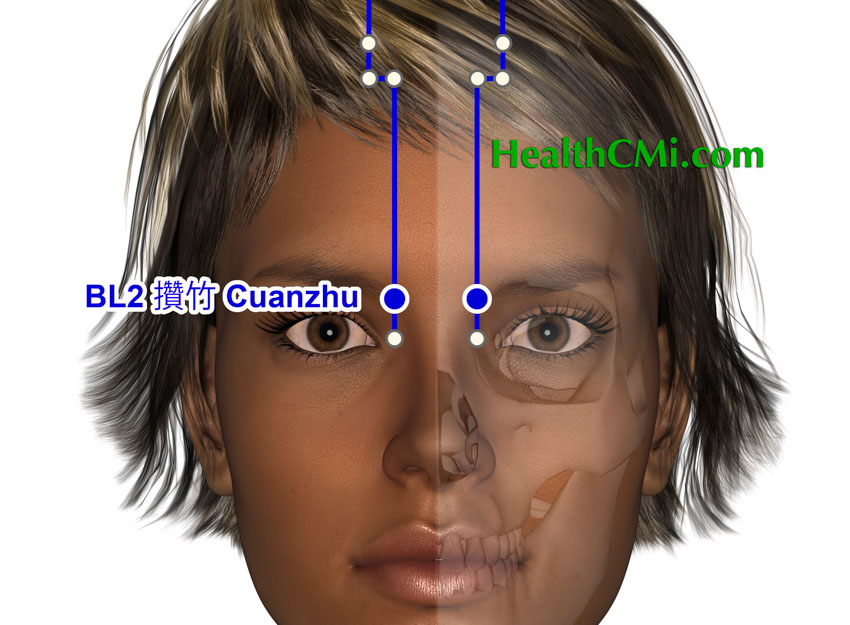
Acupuncture has an important role in helping cancer patients after surgery. After stomach or other digestive tract procedures, there may be uncontrollable hiccups that may last for hours, weeks, and even years. This can lead to exhaustion, insomnia, arrhythmias, dehydration, gastroesophageal reflux disease (GERD), and many other complications. New research finds acupuncture an effective way to combat this disorder.
Hunan University of Traditional Chinese Medicine and its affiliated Hunan Xiangya Hospital conducted a clinical trial. They determined that acupuncture is effective for the alleviation and elimination of intractable hiccups after gastric cancer surgery. In an important an unexpected finding, acupuncture was determined a superior treatment modality to a common drug therapy for this condition. [1] Learn more in the acupuncture continuing educatiom course for online CEUs: Hiccups, Digestion and Stomach Pain >
There were a total of 80 patients admitted into the hospital that participated in this investigation. Inclusion criteria were based on the Manual of Practical Techniques for Clinical Diagnosis and Treatment of Digestive Diseases. All patients suffered from frequent hiccups of different sound volume levels. For all patients, the condition lasted for over 48 hours. Patient intakes reveal that participants in the investigation also experienced a sense of stagnation in chest region and a heated sensation in the stomach area. A common report by the patients was a sense of emotional turbulence.
The 80 patients were randomized into an electroacupuncture group and a drug control group. Statistical baselines were the same prior to the clinical research. Before and after the treatment, observation parameters (including frequency of hiccups, onset time, and a symptom scoring scale) were recorded and assessed. After the completion of the treatment, the electroacupuncture group presented a more significant change in frequency of hiccups, dropping from 10.00 ±0.457 to 2.85 ±0.409.
The drug control group experienced a smaller change from 9.90 ±0.443 to 4.70 ±0.528. Onset time in the electroacupuncture group was considerably lower at 3.284 ±0.208 as opposed to that of the control group (4.583 ±0.541). In terms of the symptom scores, the electroacupuncture group showed a more marked decline from 7.28 ±0.237 to 2.78 ±0.329. Across all parameters, electroacupuncture produced superior outcomes.
In the drug control group, a metoclopramide dihydrochloride (1 ml) was injected intramuscularly on a daily basis for 14 days. In the injection form, this drug is used to prevent the onset of vomiting or nausea due to surgery or chemotherapy. Orally, this drug is also used for the treatment of slow emptying of the stomach (gastroparesis) and also to relieve heartburn. Functionally, this medication increases digestive tract contractions and speeds the emptying of the stomach.
In the electroacupuncture group, needles (0.30 × 40 mm) were utilized to administer treatment. An electroacupuncture device was attached to the needle ends. A continuous wave was used, with frequency set at 2 Hz. Intensity was gradually adjusted to patients’ tolerance threshold. Needle retention time was 20 minutes. The same total duration of treatment timespan was conducted as in the drug control group. The points chosen in the study were as follows:
- ST36 (Zusanli)
- BL17 (Geshu)
- PC6 (Neiguan)
In an independent study conducted in the Ruzhou Tianlin Neck-Shoulder-Waist-Leg Pain Hospital, researchers investigated the efficacy of San Cai acupuncture in treating patients suffering from intractable hiccups (IH) after stroke. San Cai (三才), translated as three Cai, refers to the the Chinese notion of “heaven-earth-human.” San Cai also indicates the different positions and insertion depths of the needles. Points at the upper, middle and lower part of the body received acupuncture with incremental needling lengths.The results show that acupuncture significantly reduces frequency and duration of hiccups. A higher efficacy rate (91. 4%) was demonstrated in the San Cai observation group over the control group. [2]
A total of 70 stroke patients were admitted into the study. The were two randomized groups: the control group was given standard acupuncture and the observation group received San Cai acupuncture. Needles used in this study were 0.25 mm × 25–50 mm. The standard acupuncture group received treatment on the following points:
- CV22 (Tiantu)
- CV12 (Zhongwan)
- CV17 (Danzhong)
- BL17 (Geshu)
- PC6 (Neiguan)
- ST36 (Zusanli)
Needles at Tiantu were inserted, forming a 15 degree angle with the skin surface and reaching a depth of 0.3 to 0.5 cun. For Zhongwan, needles were perpendicularly inserted to a depth of 1.0 to 1.5 cun. For Tanzhong, needles were obliquely inserted to a depth of 0.3 to 0.5 cun. For Geshu, needles were inserted to a depth of 0.5 to 0.8 cun. For Neiguan, needles were perpendicularly inserted to a depth of 0.5 to 1.0 cun. For Zusanli, needles were perpendicularly inserted to a depth of 1.0 to 2.0 cun. An attenuating manipulation was applied to Zusanli and a mild reinforcing and attenuating method was applied to the rest of the points For the San Cai needling group, the following points were used:
- BL2 (Cuanzhu)
- CV12 (Zhongwan)
- LV3 (Taichong)
- SP6 (Sanyinjiao)
Patients took a supine position. For Cuanzhu, needles were inserted to a depth of 0.5 to 0.8 cun. For Zhongwan, needles were perpendicularly inserted to a depth of 1.0 to 1.5 cun. For Taichong, needles were perpendicularly inserted to a depth of 0.5 to 0.8 cun. For Sanyinjiao, needles were perpendicularly inserted to a depth of 0.5 to 1.0 cun. A mild reinforcing and attenuating method was applied to all of the points. The above treatment was performed twice a day in the mornings and evenings for a total of eight days. Both groups demonstrated significant positive outcomes and the San Cai group outperformed the standard acupuncture group.
References:
1. Wang Chenchen, Zhanghui, Xiewei, Zhang Lin, Li Jiahui, Clinical Observation of Electroacupuncture for Intractable Hiccups After Gastric Cancer Surgery,uiding Journal of Traditional Chinese Medicine and Pharmacology, 2022,28(8):65-68.
2. Zhang Yuelei, The Influence of Heaven-Human-Earth Acupuncture on the Frequency and Duration of Hiccup in Patients with Intractable Hiccup After Stroke Henan Traditional Chinese Medicine, March 2022, Volume 42, Issue 3.


